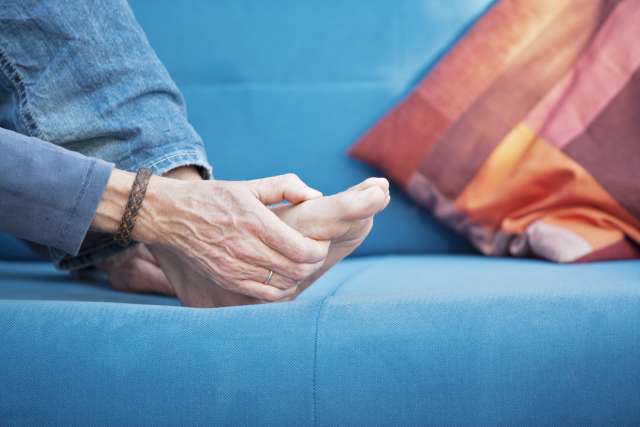Hello, dear readers, and welcome to autumn! We're hurtling toward the holiday season and will soon be tackling your questions about dietary strategies, the mental health challenges of waning daylight and how best to manage the cases of cold, flu and, yes, COVID-19 that are headed our way. For now, onward to your letters.
-- We often write about peripheral neuropathy, which is nerve damage that leads to numbness, tingling, pain or weakness in areas throughout the body. A recent column, which explained the role of high blood glucose in neuropathy, prompted this question from a reader:
"I have neuropathy on the bottom of my feet. My glucose numbers on my blood test were fine," they wrote. "I have minor back problems now and then, and my hunch is that the neuropathy might be from a pinched nerve. How can I get a diagnosis for this problem?"
It's a good idea to begin with your primary care physician. With a physical exam, a detailed description of your symptoms and a review of your medical history, your doctor can narrow down the potential causes. If a pinched nerve is suspected, you may be referred to a neurologist.
Treatment depends on the affected nerve and on any underlying conditions that may be leading to nerve compression. Possibilities include medication, physical therapy and chiropractic adjustment. In more serious cases, surgery may be recommended.
-- A reader experiencing new physical symptoms following a screening test with normal results asks what her next step should be:
"I had a breast ultrasound in November, and everything was fine," she wrote. "But as of late, my chest area has been feeling a little hot, and sometimes there’s a shot of pain coming from my left side. Should I go back to the doctor?"
When you have left-sided chest pain, it's a good idea to see your primary care physician. Further testing, including a chest X-ray, an EKG and a cardiac ultrasound, may be advised. If the pain is suspected to be cardiovascular in origin, you may be referred to a cardiologist.
-- We recently discussed burning mouth syndrome, which is the sudden onset of a burning sensation in the mouth, lips and tongue, and which can become more common in menopause. It prompted this question from a reader:
"Since July of last year, the tip of my tongue is numb. It feels like it had a shot of Novocain," they wrote. "It’s a really weird feeling, and I’ve bitten it once or twice. There’s no difference in temperature on my tongue, and the color is normal. What can it be?"
The type of numbness that you have described is commonly associated with a nerve injury. It can also arise from an adverse response to a chemical compound in the toothpaste or mouthwash you may be using. However, an examination is needed to learn more.
We suggest that you begin by consulting your dentist. They may have an answer, or they may recommend that you see a specialist, such as an ear, nose and throat doctor.
Thank you, as always, for your letters. We look forward to hearing from more of you.
(Send your questions to [email protected], or write: Ask the Doctors, c/o UCLA Health Sciences Media Relations, 10960 Wilshire Blvd., Suite 1955, Los Angeles, CA, 90024. Owing to the volume of mail, personal replies cannot be provided.)





